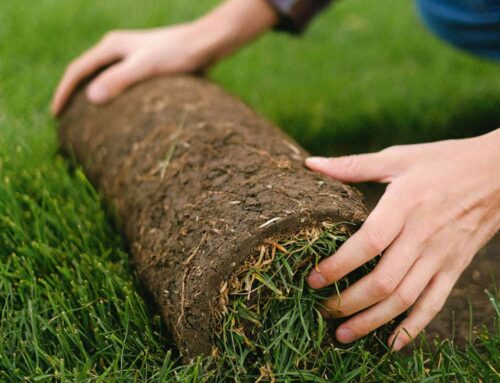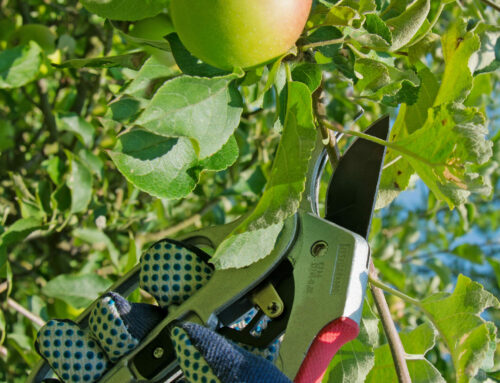Toxicity & Tolerance
The black walnut tree, juglans nigra, often presents a challenge in the garden as it is allelopathic. This means it releases chemicals from roots and other parts of the tree which harm other plants and organisms. This chemical is called juglone and it can damage certain plants up to 80′ away. It is found in all parts of the plant, so it is very important NOT to use black walnut mulch, leaves, branches or hulls in the garden. Even after a black walnut tree has been removed, the presence of juglone will remain in the soil where the roots were for several years to come. Symptoms of poisoning include chlorosis (yellowing foliage), wilting, deformation, and stunted growth eventually leading to death. There is no cure once plants are infected. Identifying where you or your neighbor(s) have any black walnut trees will help you determine which plants will or will not thrive when planting near.
Tolerant Evergreens
- Chinese juniper
Juniperus chinensis - Common juniper
Juniperus communis - Eastern red cedar
Juniperus virginiana - Arborvitae
Thuja sp. - Eastern Hemlock
Tsuga canadensis
Tolerant Vines
- Clematis
Clematis sp. - Honeysuckle
Lonicera sp. - Virginia Creeper
Parthenocissus - Wild Grape
Vitis sp. - Wisteria
Wisteria sp.
Tolerant Trees
- Japanese Maple
Acer palmatum - Red Maple
Acer rubrum - Sugar Maple
Acer saccharum - Serviceberry
Amelanchier sp. - River Birch
Betula nigra - Redbud
Cercis canadensis - Fringe Tree
Chionanthus sp. - Flowering Dogwood
Cornus florida - Hawthorn
Crataegus sp. - Persimmon
Diospyros virginiana - American Beech
Fagus grandifolia - Silverbell
Halesia carolina - Witch Hazel
Hamamelis sp. - Sweet Gum
Liquidambar styraciflua - Tulip Tree
Liriodendron tulipifera - Cucumbertree
Magnolia acuminata - Tupelo
Nyssa sylvatica - Sycamore
Platanus occidentalis - White Oak
Quercus alba - Northern Red Oak
Quercus rubra - Black Locust
Robinia pseudoacacia - Willow
Salix sp. - American Elm
Ulmus americana
Tolerant Shrubs
- New Jersey Tea
Ceanothus americanus - Pagoda Dogwood
Cornus alternifolia - Euonymus
Euonymus sp. - Forsythia
Forsythia sp. - Rose-of-Sharon
Hibiscus syriacus - Wild Hydrangea
Hydrangea arborescens - Juniper
Juniperus sp. - Spicebush
Lindera benzoin - Mock-Orange
Philadelphus sp. - Ninebark
Physocarpus opulifolius - Exbury Rhododendron
Rhododendron hybrids - Fragrant Sumac
Rhus aromatica - Currant
Ribes sp. - Black Raspberry
Rubus occidentalis - Elderberry
Sambucus sp. - Maple-leaved Viburnum
Viburnum acerifolium - Korean Spice Viburnum
Viburnum carlesii - Southern Arrowwood Viburnum
Viburnum dentatum - Yucca
Yucca sp.
Tolerant Perennials, Bulbs, and Wildflowers
- Yarrow
Achillea sp. - Bugleweed
Ajuga sp. - Hollyhock
Alcea rosea - Windflower
Anemone sp. - Jack-In-The-Pulpit
Arisaema triphyllum - Wild Ginger
Asarum sp. - Aster
Aster sp. - Astilbe
Astilbe sp. - Lady Fern
Athyrium - Bellflower
Campanula sp. - Chrysanthemum
Chrysanthemum sp. - Bleeding Heart
Dicentra spectabilis - Wood Fern
Dryopteris - Purple Coneflower
Echinacea purpurea - Epimedium
Epimedium sp. - Joe Pye Weed
Eupatorium sp. - Snowdrop
Galanthus nivalis - Sweet Woodruff
Galium odoratum - Cranesbill
Geranium sp. - Perennial Sunflower
Helianthus sp. - Hellebore
Helleborus sp. - Daylily
Hemerocallis sp. - Coral Bell
Heuchera sp. - Hosta
Hosta sp. - Siberian Iris
Iris sibirica - Lilyturf
Liriope sp. - Cardinal Flower
Lobelia sp. - Bee Balm
Monarda sp. - Grape Hyacinth
Muscari sp. - Daffodil
Narcissus sp. - Evening Primrose
Oenothera sp. - Cinnamon Fern
Osmunda cinnamomeum - Summer Phlox
Phlox paniculata - False Dragonhead
Physostegia sp. - Jacob’s Ladder
Polemonium reptans - Solomon’s Seal
Polygonatum sp. - Christmas Fern
Polystichum acrostichoides - Primrose
Primula sp. - Lungwort
Pulmonaria sp. - Black-Eyed Susan
Rudbeckia sp. - Siberian Squill
Scilla sibirica - Stonecrop
Sedum sp. - Goldenrod
Solidago sp. - Lamb’s Ear
Stachys byzantina - Spiderwort
Tradescantia virginiana - Trillium
Trillium sp. - Tulip
Tulipa sp. - Speedwell
Veronica sp. - Violet
Viola sp.
Plants SENSITIVE to Juglone
Juglone – a poisonous chemical released by the Black Walnut Tree
- alder
- alfalfa
- apple
- asiatic lily
- asparagus
- autumn crocus
- azalea
- blackberry
- blueberry
- cabbage
- columbine
- cotoneaster
- crabapple
- eggplant
- forget-me-not
- hydrangea
- lilac
- mountain laurel
- nicotiana
- peony
- pepper
- petunia
- pine
- potato
- potentilla
- privet
- rhododendron
- rhubarb
- silver maple
- spruce
- tomato
- viburnum
- yew




